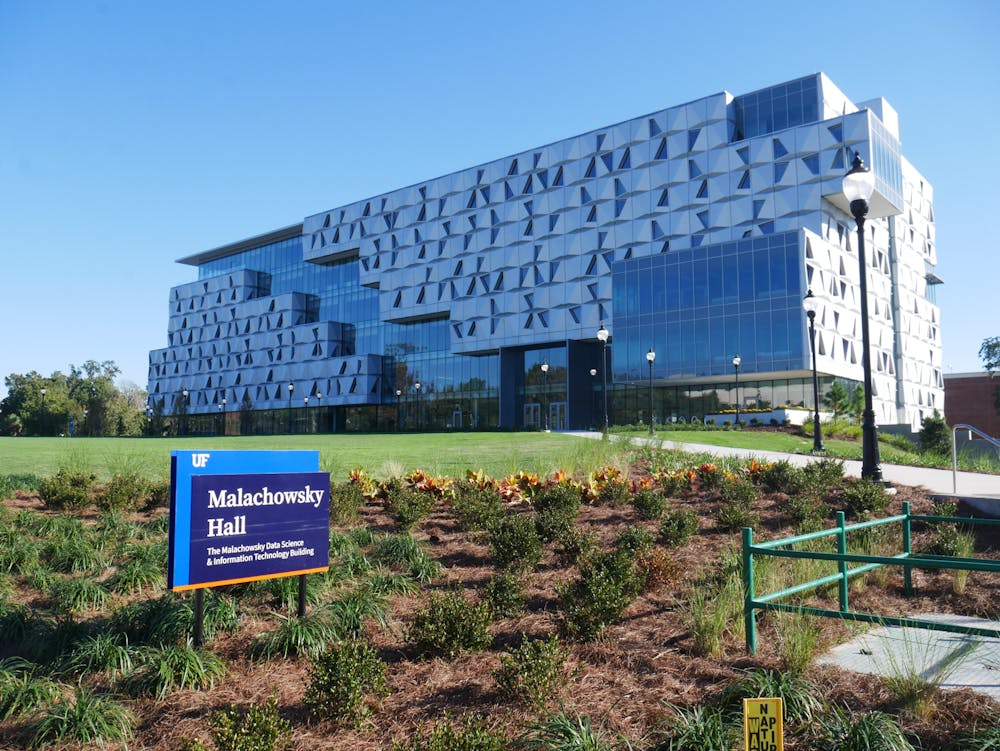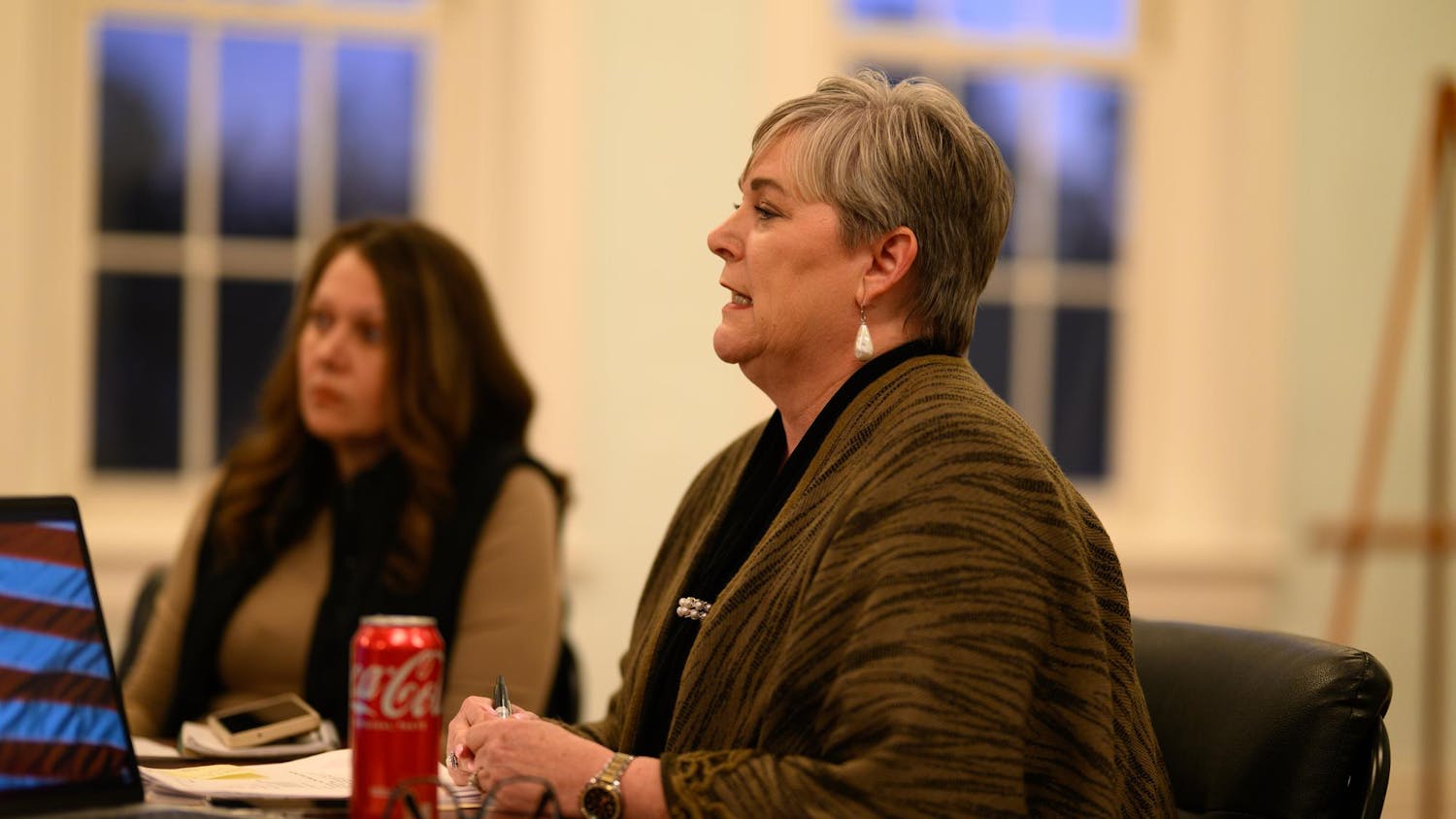On Feb. 7, around 50 students received an email whose first line read, “We appreciate how hard our faculty and students work, but it’s Malachowsky Hall, not Malachowsky Hotel.”
It referenced students sleeping in the graduate student village in Malachowsky Hall and included two photos of the culprits.
The email was sent by David Arnold, professor and associate chair for faculty affairs at the Department of Electrical and Computer Engineering. He wrote that multiple students had been sleeping in meeting booths on the fourth floor of the building.
If students continue to use the space for sleeping, they may have their access to the student villages — located on the fourth floor — revoked, according to the message.
The message finished by telling students to reach out to their advisers and Arnold himself if they feel stressed or overworked.
“We want to ensure a healthy working environment for all our students and employees,” Arnold wrote.
What surprised students the most was the two photos of students sleeping attached to the email as evidence of the situation.
A screenshot of the email circulated on the unofficial UF Reddit page. Throughout the week, students expressed concern and frustration toward the email’s tone. The original post that contained the screenshot of the email has since been taken down.
Agustin Giraldo, a 24-year-old UF computer science major, spends anywhere from three to 20 hours a week at Malachowsky Hall for classes, studying and club meetings. He enjoys how productive Malachowsky makes him feel, but the unclear restrictions and the lack of vending machines can get frustrating, he said.
He found out about the email through Reddit. He was mainly caught off guard when he saw the photos attached to the email.
“It was unreasonable to take someone’s picture without their consent, especially if they’re sleeping,” Giraldo said. “If you want to reiterate why that was bad, those photos were unnecessary.” After reading the email, his perception of the building changed.
“Is it an academic center, or is it a business center?” he said. “What exactly is the purpose of Malachowsky if it wasn’t for students or graduate students?”
He’s realized that many rooms stay locked and require special key access. He recently found out that he couldn’t stay studying later in the night because a security guard approached him around 8 p.m. and informed him students couldn’t be in the building past a certain hour.
Ivan Ruchkin, an engineering professor, was surprised when he first received the email. Some of his students asked him about it, he said.
“They were trying to get a sense of both the reasoning and the rationale behind it,” he said.
He understands situations need to be reported, he said, especially when students can spend any time between three and 50 hours a week in Malachowsky Hall.
The scope of the email went beyond current graduate students, toward whom the email was geared.
Joseph Melville, 32, was sent the email despite having graduated last year. When he was a student, Malachowsky Hall hadn’t opened yet. He remembered being skeptical about the open floor plan because the clear doors and rooms could get in the way of graduate assistants’ privacy.
“It was funny in a slightly sad way,” Melville said about the email.
Melville was part of the Graduate Student Wellness Committee for the electrical and computer engineering department.
“It’s hard to say exactly what needs to be done,” Melville said. “Professors have their needs that need to be met also.”
While he is no longer a student, he said there is still a lot to be done to make sure rules and expectations are as transparent as possible.
While resources exist to help graduate assistants, there’s little awareness that they exist, Melville said. To him, the main problem is that “students felt like they weren’t listened to enough.”
Shayan Hadjiabadi, a 27-year-old UF genetics and plant breeding graduate student, spends up to six hours a week in Malachowsky Hall and enjoys the graduate student room. He heard about the email after a cohort member forwarded it to him.
The email was “just very confusing,” Hadjiabadi said.
“I’ve seen people sleeping just like I see people sleeping in Marston and Lib West,” he said. “I’ve never thought twice about it.”
It wasn’t the first time he’d heard about instances of students clashing with building administrators.
“There were solitary incidents where people were spoken to personally face-to-face, not in a mass email setting,” he said. “It’s pretty unusual to see an email that’s so pointed.”
Mark Tehranipoir, the chair of the department of electrical and computer engineering, wrote in an email that custodial staff originally brought the issue to the attention of the college’s leadership. He wrote that the email’s intent was never to be insensitive.
“On Friday afternoon, department leadership met with students to reset the conversation, listen to their concerns and work together on finding solutions,” he wrote.
According to him, the meeting was productive.
He wrote that graduate-level engineering is very demanding, but he’s committed to making Malachowsky a supportive learning environment.”
Contact Delia Rose Sauer at drosesauer@alligator.org. Follow her on Twitter @_delia_rose_.
Delia Rose Sauer is a journalism senior and the Summer 2025 Editor-in-Chief. She reported on the university desk for two semesters. When she's not glued to her laptop, she's drawing on Procreate, crocheting or creating a new Spotify playlist.






